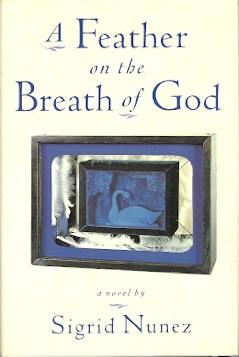Synopsis
In this profoundly moving novel, a young woman looks back to the world of her immigrant parents: a Chinese-Panamanian father and a German mother who meet in post-war Germany and settle in New York. Growing up in a housing project in the 1950s and 1960s, the narrator escapes into dreams inspired both by her parents' stories and by her own reading and, for a time, into the otherworldly life of ballet. A yearning, homesick mother, a silent and withdrawn father, the ballet - these are the elements that shape the young woman's imaginations and sexuality. Years later, while working as an English instructor, she begins an affair with a Russian immigrant. As his English improves, he binds her to him by becoming more and more articulate in expressing his feelings for her, but at the same time frightens her with every new revelation about his own troubled past.
Reviews
In this luminous debut novel about a young woman of mixed race, Nunez writes with fierce clarity, rare empathy and sharp humor of immigrant dreams and frustrations. The vulnerable, nameless narrator, who grows up in a Brooklyn housing project in the 1950s and '60s, is the daughter of Carlos, a silent, workaholic Chinese-Panamanian father, and Christa, a self-dramatizing German mother, who met shortly after V-E Day in Germany. Moving to New York in 1948, they raise three daughters in a marriage marked by poverty, violent quarrels and Christa's agoraphobia. Through flashbacks, Nunez shows Christa growing up in a Catholic boarding school taken over by the Nazis, while her father, an anti-Hitler protester, is arrested and confined in a concentration camp. The narrator-ignored by her father and dominated by her mother-escapes into a perfectionistic, masochistic world of ballet classes and becomes anorexic. Later, she has a doomed affair with a married Russian immigrant taxi driver with an unsavory past. The novel is marked by uncompromising honesty and the vivid immediacy of Nunez's prose. Author tour.
Copyright 1994 Reed Business Information, Inc.
With a subtle blend of fierceness and evanescence, Nunez's debut comments profoundly on the lasting effects of the immigrant experience and the haunting powers of family. The unnamed female narrator tells a four-part story that begins with her father, a Chinese-Panamanian immigrant who moved to Brooklyn at the age of 12 or 13. She understands little about this workaholic who spent most of his time away from home until cancer felled him. Why didn't he ever learn to speak English? Why, in his 30s, did he switch his name from Chang to the Hispanic surname of his mother? Why did he refuse to discuss anything at all with his children? She can't answer these questions. She can merely collect what she does know and accept that it's too late to understand him. Her German-born mother, Christa, was her father's opposite: Full of rage, grace, beauty, laughter, and sorrow, Christa clung to her German heritage and spoke constantly of her past. The book's second section, which deals with her, is about love and nostalgia, about seeing with all her flaws the one individual who most shaped the narrator's life (``I seem to remember my mother as though she were a landscape rather than a person''). The third part is devoted to the narrator's dream of becoming a ballerina, which, as she poignantly states, ``begins with the dream of being beautiful.'' Here she makes some caustic connections between foot binding and toe shoes; she also recognizes that in ballet she sought escape and discipline. The final section revolves around an ill-advised love affair. The narrator examines the theory that no matter how far you go in life ``you must stick with your own class'' and sees in herself the intense desire to please, charm, and provoke desire. A rich, intelligent tapestry of the connections between language, love, beauty, and forgiveness. -- Copyright ©1994, Kirkus Associates, LP. All rights reserved.
"About this title" may belong to another edition of this title.

